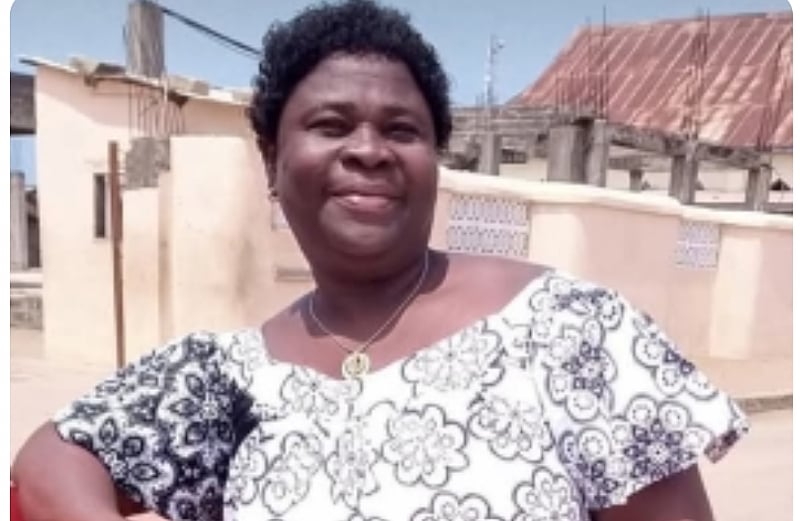The quiet town of Anloga in Ghana’s Volta Region was shaken by the brutal murder of Dorcas Korkor Tetteh, a beloved chop bar owner, in December 2024. A month later, with the police investigation yielding no results, her grieving family turned to a different kind of justice system – the revered Nogokpo Shrine, home to the thunder god, Togbi Zakadza. Seeking spiritual intervention, the family sought and received permission from Togbi Zewu IV, the Dufia of Anloga and Dome Fiaga of the Anlo State, to publicly announce their intentions. This involved the traditional beating of the gong-gong, a customary way to inform the community of their decision to enlist the powerful deity in their quest for justice. The letter granting permission underscored the importance of community awareness, acknowledging the gravity of seeking spiritual intervention from the Nogokpo shrine, a place widely recognized for its potency and the fear it inspires.
The Nogokpo Shrine, located near Agbozume in the Ketu South Municipality, holds a formidable reputation across Ghana. Known as a potent spiritual force, the shrine attracts numerous individuals seeking resolutions for perceived injustices and wrongs. Unlike modern legal courts, the shrine, and specifically the god Zakadza, is believed to possess the power to discern truth, administer justice, and inflict punishment on perpetrators, particularly in cases of heinous crimes like murder. The shrine’s notoriety precedes it, instilling both reverence and trepidation in many.
The workings of the shrine, as explained by Dogbatsey Tengey, a priest at Nogokpo, involve a series of rituals initiated by the victim’s family. Following these rituals, emissaries are dispatched to beat the gong-gong, a public summons for the perpetrators to confess their crime and submit to traditional justice. Should the culprits fail to heed this first call, the family returns to the shrine for another ritual and a second gong-gong beating. This second attempt emphasizes the severity of the situation and serves as a final warning. If confession remains elusive, the wrath of Zakadza is invoked, potentially bringing devastating consequences upon the guilty party and even their extended family.
Togbi Agbesi Awusu II, the Awadada (War Lord) of Anlo, acknowledged the chief of Anloga’s permit for the spiritual intervention, emphasizing that this action complements the ongoing police investigation. He drew parallels to practices in the Western world, where spiritual guidance is sometimes sought in criminal investigations. Expressing hope for the swift apprehension of the perpetrators, he urged community cooperation with both traditional and legal authorities. This highlights the intersection of traditional beliefs and modern law enforcement in the pursuit of justice within the community.
The murder itself took place on Saturday, December 28, 2024. Dorcas Korkor Tetteh, aged 60, was found dead in her room at her Anloga residence. The scene suggested a possible robbery turned deadly, with metal bars removed from her windows and doors left ajar. Initial reports from neighbors and the Presiding Member of the Anloga District Assembly, Joseph Kpattah, indicated that she had returned from church service the night before. Upon the arrival of her employees on Saturday morning, the grim discovery was made, with bruises marking her body. The police were promptly informed and transported the body for further investigation. This tragic event marked the beginning of a search for justice that would eventually lead the family to the doors of the Nogokpo Shrine.
The family’s decision to seek the intervention of the Nogokpo Shrine reflects a deeply rooted cultural belief system in which traditional justice mechanisms coexist with modern legal systems. The case highlights the importance of community involvement and the enduring power of spiritual beliefs in shaping responses to crime. The beating of the gong-gong serves not only as a call for confession but also as a symbolic act, reinforcing community values and expectations for accountability. The ensuing events, guided by the pronouncements of the shrine, will unfold within a complex interplay of tradition, belief, and the pursuit of justice in the heart of the Volta Region.


